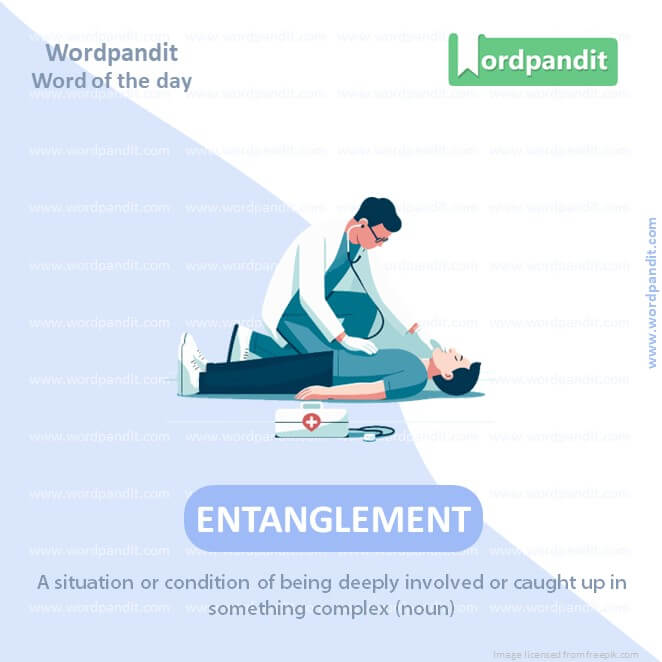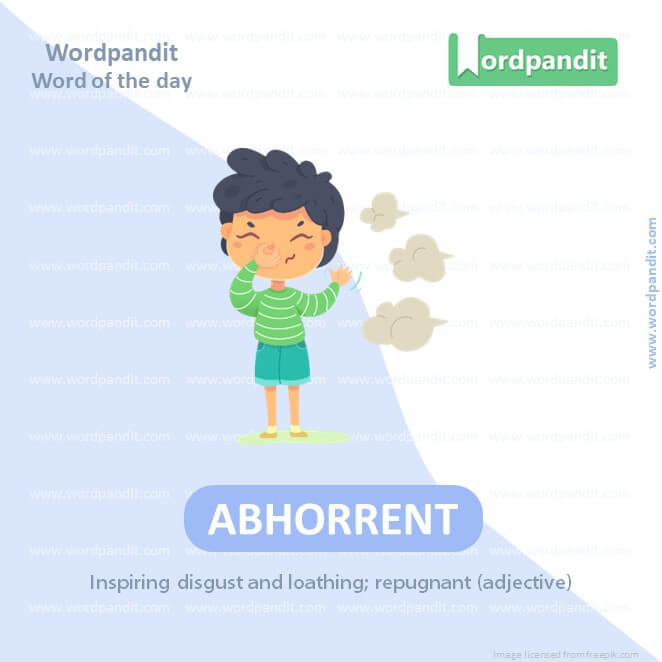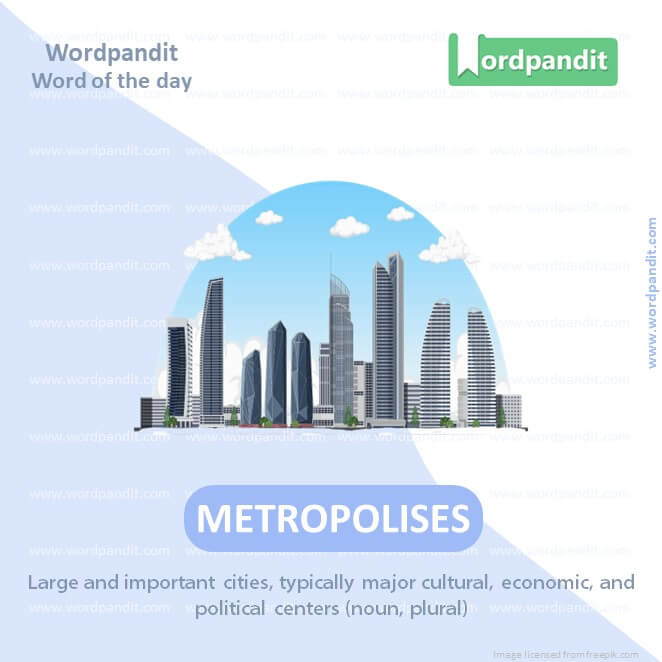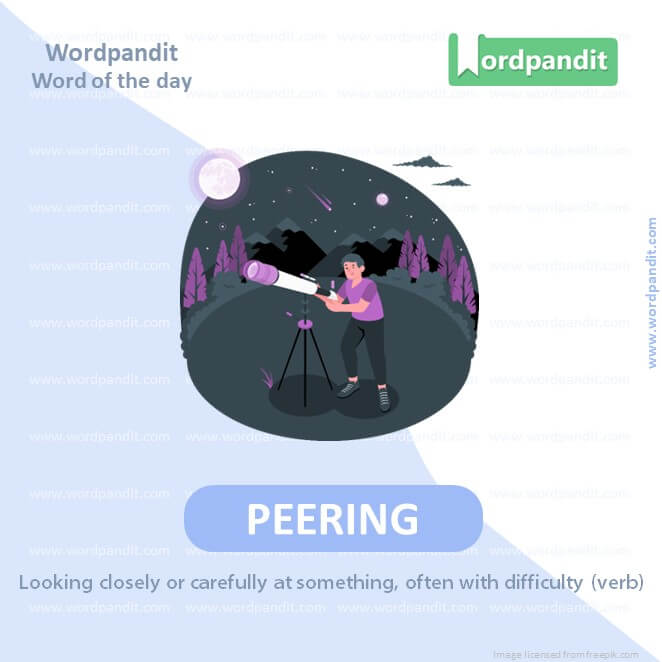Daily Vocabulary Words: Enhance Your Lexicon with Leading Newspapers & Publications
Welcome to the Daily Vocabulary section at Wordpandit!
Our mission is straightforward: to bring you essential vocabulary words featured in top newspapers and publications worldwide. By focusing on words you’ll encounter in renowned sources, we aim to help you enhance your vocabulary effectively and practically.
Our selection includes words from:
– The New York Times
– The Washington Post
– Scientific American
– BBC
– The Guardian
– Psychology Today
– Wall Street Journal
– The Economist
– The Hindu
– The Times of India
– The Economic Times
– Hindustan Times
– Live Mint
– The Indian Express
– And many more.
We are committed to your vocabulary development. Simply visit this section regularly and explore the daily posts. This is your go-to repository for commonly used words, providing significant practical benefits by familiarizing you with vocabulary from the leading publications listed above.
Make it a habit to visit our website daily and expand your lexicon with words from top newspapers and publications.
WORD-1: LURCH
CONTEXT: Every journalist who covered the story at the time has their own personal narrative about the last week of the previous millennium when, instead of celebrating, India lurched through the harrowing ordeal of the IC-814 hijack, and the sadness and anger that followed the surrender of three dreaded terrorists at Kandahar.
SOURCE: The Hindu
EXPLANATORY PARAGRAPH: Imagine you are walking down the street and suddenly you trip or stumble, making you move quickly in one direction without meaning to. That quick, jerky movement is called a “lurch.” It can happen when you lose your balance or if something suddenly jerks forward.
MEANING: A sudden, unsteady movement (noun).
PRONUNCIATION: LURCH
SYNONYMS: stagger, stumble, sway, jerk, jolt, pitch, reel
USAGE EXAMPLE:
1. The bus came to a sudden lurch as the driver hit the brakes.
2. He felt the ship lurch in the rough seas.
3. As the car engine failed, it lurched forward and then stopped.
4. The dog lurched toward the ball when it was thrown.

WORD-2: THWARTED
CONTEXT: Their kidnapping later of four tourists had been thwarted by the police after a shoot-out.
SOURCE: The Hindu
EXPLANATORY PARAGRAPH: Imagine you are building a tower with your blocks, and just as you are about to put the last block on top, your friend takes it away. You feel stopped or blocked from finishing your tower. That’s what “thwarted” means.
MEANING: Prevented from accomplishing a goal (verb).
PRONUNCIATION: THWAWR-tid
SYNONYMS: foiled, frustrated, hindered, obstructed, stymied
USAGE EXAMPLES:
1. The spy thwarted the villain’s plan to take over the world.
2. She felt thwarted by all the rules that stopped her from going outside.
3. His hopes of winning the race were thwarted by a sudden injury.
4. The attempt to save the old theater was thwarted by lack of funds.
WORD-3: REPRIEVE
CONTEXT: A judge agreed Friday (September 6, 2024) to postpone Donald Trump’s sentencing in his hush-money case until after the November election, granting him a hard-won reprieve as he navigates the aftermath of his criminal conviction and the homestretch of his presidential campaign.
SOURCE: The Hindu
EXPLANATORY PARAGRAPH: Imagine you are about to clean up your toys because playtime is over, but then your mom says you can play a little longer. That extra time to play is like a “reprieve.”
MEANING: A delay in the punishment or negative outcome; a temporary relief from something unpleasant (noun).
PRONUNCIATION: rih-PREEV
SYNONYMS: respite, relief, pardon, stay, postponement
USAGE EXAMPLES:
1. The rain gave us a reprieve from the summer heat.
2. He received a reprieve from his chores to play outside with friends.
3. The test was postponed, giving students a reprieve to study more.
4. The governor granted a reprieve to the prisoner.

WORD-4: ENTANGLEMENT
CONTEXT: Such leverage will make that country vulnerable to greater debt entanglement.
SOURCE: Hindustan Times
EXPLANATORY PARAGRAPH: Think about a time when your shoelaces got all tied up together, and it was hard to untie them. This mixed-up mess is like “entanglement,” where things are twisted or connected in a complicated way.
MEANING: A situation or condition of being deeply involved or caught up in something complex (noun).
PRONUNCIATION: en-TANG-guhl-ment
SYNONYMS: Complication, involvement, mess, snarl, confusion, tangle
USAGE EXAMPLE:
1. The story was full of mystery and entanglement between the characters.
2. They found themselves in an entanglement that was hard to resolve.
3. His entanglement in the scheme caused him a lot of trouble.
4. The ropes were in such an entanglement that it took hours to separate them.
WORD-5: AUDACIOUS
CONTEXT: This was a truly audacious posit. At the time, the only subatomic particles known to physicists were protons and electrons, and the idea of introducing an additional neutrally charged particle would have been, according to one historian of science, nothing short of ‘abhorrent’.
SOURCE: Aeon
EXPLANATORY PARAGRAPH: Imagine you are dressed as a superhero, and you feel so brave that you think you can do anything, like jump from one couch to another. That very brave feeling is what “audacious” means.
MEANING: Showing a willingness to take surprisingly bold risks (adjective).
PRONUNCIATION: aw-DAY-shus
SYNONYMS: daring, bold, brave, fearless, adventurous
USAGE EXAMPLES:
1. She made an audacious decision to travel the world alone.
2. His audacious remarks surprised everyone in the room.
3. The plan was audacious, but it worked perfectly.
4. They took an audacious approach to solving the problem.

WORD-6: ABHORRENT
CONTEXT: This was a truly audacious posit. At the time, the only subatomic particles known to physicists were protons and electrons, and the idea of introducing an additional neutrally charged particle would have been, according to one historian of science, nothing short of ‘abhorrent’.
SOURCE: Aeon
EXPLANATORY PARAGRAPH: Think about when you smell something really bad, like rotten eggs, and you want to run away because it’s so yucky. That feeling of really not liking something because it seems so wrong or bad is what “abhorrent” means.
MEANING: Inspiring disgust and loathing; repugnant (adjective).
PRONUNCIATION: ab-HOR-rent
SYNONYMS: disgusting, repulsive, loathsome, detestable, offensive
USAGE EXAMPLES:
1. The idea of cheating on the test was abhorrent to her.
2. They found the crime scene abhorrent.
3. His behavior towards the animals was considered abhorrent.
4. Pollution is abhorrent to environmentalists.
WORD-7: APPLAUDING
CONTEXT: Most importantly, he took India to the high table of global governance, with every country applauding and respecting his leadership and India’s global role.
SOURCE: Indian Express
EXPLANATORY PARAGRAPH: Imagine you did a really great job building a tall tower with your blocks, and everyone around starts clapping their hands for you. That clapping to show they are happy and proud of what you did is called “applauding.”
MEANING: The act of clapping hands as a show of approval or praise (noun).
PRONUNCIATION: uh-PLAW-ding
SYNONYMS: Cheering, clapping, acclaiming, praising, lauding, commending
USAGE EXAMPLE:
1. Everyone started applauding after the little girl finished singing her song.
2. The audience was applauding loudly at the end of the play.
3. His speech was so inspiring that it was met with applauding from all around.
4. She was applauding excitedly when her friend won the award.

WORD-8: METROPOLISES
CONTEXT: His cricketing career is not just a benchmark of success and excellence, but stands as a testament to his character, marked by humility and self-effacing grace, and is a symbol of hope for millions across India where cricketers once rose only from the major metropolises.
SOURCE: Indian Express
EXPLANATORY PARAGRAPH: Imagine a very big city with lots of buildings, people, cars, shops, and things to do. This big city is called a “metropolis.” When we talk about many such big cities, we use the word “metropolises.”
MEANING: Large and important cities, typically major cultural, economic, and political centers (noun, plural).
PRONUNCIATION: meh-TROP-uh-luh-sees
SYNONYMS: Cities, capitals, megacities, urban centers, cosmopolises, hubs
USAGE EXAMPLE:
1. The family traveled to various metropolises during their vacation.
2. Each of these metropolises has its own unique culture and attractions.
3. Metropolises around the world are facing similar urban challenges.
4. The conference attracted mayors from several major metropolises.

WORD-9: PEERING
CONTEXT: When we think about the methodology of science, the sort of thing that usually comes to mind involves white-coated lab scientists hunched over their benches, geologists examining rock formations in the desert, astronomers peering at the night sky.
SOURCE: Aeon
EXPLANATORY PARAGRAPH: Imagine you are trying to see something really small or far away, so you squint your eyes and lean forward to look closely. That act of looking very carefully is called “peering.”
MEANING: Looking closely or carefully at something, often with difficulty (verb).
PRONUNCIATION: PEER-ing
SYNONYMS: scrutinizing, gazing, peeping, examining, inspecting
USAGE EXAMPLES:
1. She was peering through the window to catch a glimpse of the parade.
2. He spent the evening peering at the stars through a telescope.
3. She was peering into the darkness, trying to find her lost earring.
4. The child peered over the fence curiously.
WORD-10: RENUNCIATION
CONTEXT: It was handpicked by the company’s founders for its lively ring and ease in renunciation.
SOURCE: Times of India
EXPLANATORY PARAGRAPH: Imagine deciding you don’t want to play with a certain toy anymore and telling everyone you’re going to give it up. “Renunciation” is when someone decides to give up something like a habit or a claim because they don’t want it anymore.
MEANING: The formal rejection or giving up of something, typically a claim, right, or possession (noun).
PRONUNCIATION: reh-nuhn-see-AY-shun
SYNONYMS: Rejection, abandonment, relinquishment, abdication, surrender, refusal
USAGE EXAMPLE:
1. His renunciation of the throne shocked the entire kingdom.
2. She made a public renunciation of her earlier statements.
3. The contract included a clause for the renunciation of any future legal claims.
4. The renunciation of his old habits marked a new beginning for him.













